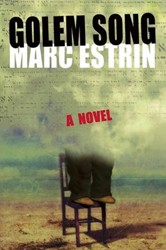Rivka Keren quotes Jeremiah at the onset of her haunting and beautifully crafted novel, reminding us that “The heart is deceitful above all things, and is exceedingly weak — who can know it?” In her non-linear plot, we are introduced to five characters, nearly all unrelated by blood, who will impact upon one another’s lives in a maddening swirl until the moment of somewhat predictable closure at the book’s tragic end.
The novel is set in three countries, Israel, Hungary, and Greece, the history of each forging a trajectory that will bring together Ilias, a Greek Orthodox monk; Beno Goittzeit, a selfrighteous Holocaust survivor; his lover, Margot Cimbolon, who has followed him from Hungary; Edna, his daughter, who is trying to free herself from her father’s overpowering grip; and Zohar, Edna’s surly, needy husband.
Keren, a Hungarian-born clinical psychologist, and a widely exhibited painter both in Israel and abroad, brings to the task of this complex intertwining a natural gift for dialogue and an intuitive grasp of improbable destinies. To enhance the objective realities, Keren adds a sixth character, a clinical psychologist whose sessions with Edna bring together the tortured strands, some of which will help her understand that “people do the most terrible things out of love.”
“What is history?” asks Edna mockingly of Zohar, “Our wretched lives day by day, by hour?” Indeed, she is asking the question for the novel’s other seared souls as well. Is it Margot’s decision to dismember her womb after an abortion she angrily and reluctantly agreed to? Is it Beni’s recurring nightmare of his wiped out family, destroyed by Nazis in moments and buried under a European river ice; or Zohar’s severed childhood, ended by a sudden Arab massacre?
What remains for each of these moving, touching characters will be laughable to some, abhorrent to others: the ongoing preoccupation of gematria by Beni, the frenetic study of history by Zohar, the maddeningly driven therapeutic sessions with Edna and her therapist, the dreamlike journey of Ilias to the “Holy Land” to honor a vow made to his dying mother, all of which are attempts to make sense of each of their tattered remaining sensibilities





